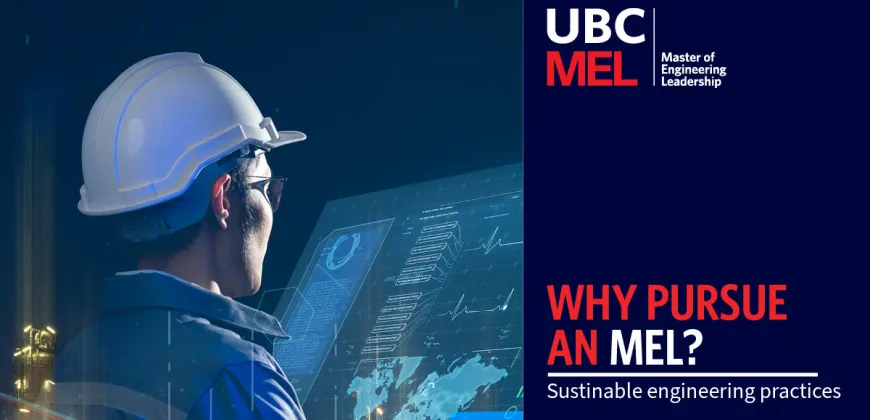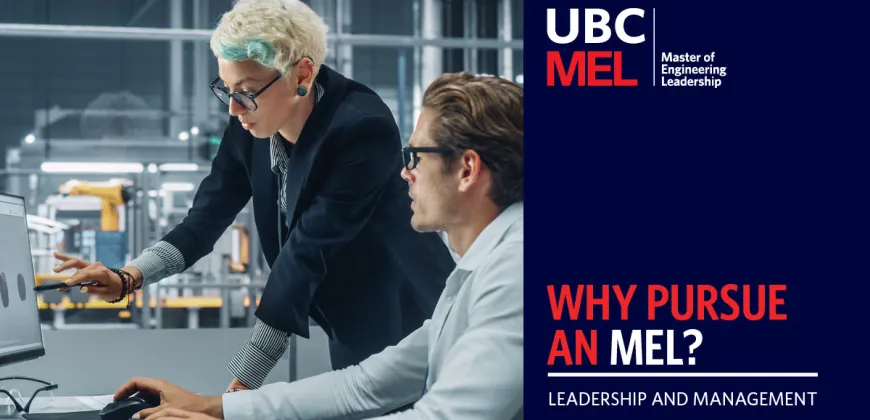How Sustainable Engineering Practices are Shaping the Future

As we find ourselves in the grips of a climate emergency – as well as crises of water scarcity, pollution and inequity – there can be no distinction between “engineering practices” and “sustainable engineering practices.” All engineering practices must be sustainable, with design, scale-up and implementation taking place with sustainability as a first principle. More than ever, our world needs people who understand the scope of the problem and who have the knowledge and tools to generate solutions – and to put those solutions into practice.
“We need more than just innovation; we need deployment and action,” says Justin Bull, Academic Director of the Master of Engineering Leadership (MEL).
“We need people who have the technical knowledge and business sensibility to get out there, scale existing solutions, lead programs and build infrastructure. That’s what the MEL sets students up to do.”
Engineers, architects and urban planners are our sustainability leaders
Professionals who want to broaden their impact as sustainability leaders may have to invest in additional education. Yet finding a program that embeds sustainability into its coursework and projects, rather than bolting it on as an afterthought or stand-alone course, can be difficult. The MEL was designed from the outset for professionals who have the desire to be sustainable engineering leaders, no matter what industry they are working within. Each of the six cross-sector programs encompasses the wide range of interdisciplinary knowledge needed to understand industry challenges and trends.
Decarbonizing industries
“The connecting thread between all the MEL programs is climate transformation and decarbonization,” says Dr. Bull.
Government and industry commitments to reach net zero by 2050 are putting pressure on all industry sectors to significantly reduce emissions. That plays out in the way buildings are designed, in how infrastructure is built, in how ships are powered, the processes we use to make materials, and how we generate, distribute and use energy. Each of the six MEL programs empowers students to be accelerators – to work within their industries to push for and lead change:
- In the MEL in Clean Energy Engineering, students learn how to lead the shift to sustainable energy solutions, from energy generation and distribution to energy-efficiency strategies and energy policy.
- In the MEL in High Performance Building, engineers and architects work together to develop innovative net zero and regenerative designs.
- In the shipping industry, although the International Maritime Organization has committed to cut marine emissions in half by 2050 compared to 2008, the current solutions available to us simply won’t get us to that target. Students in the MEL in Naval Architecture and Marine Engineering explore strategies to decarbonize the shipping industry and to generate other benefits, including reduced noise pollution.
- Cities are the intersection of many sustainability issues, from environmental pressures to economic inequality and social justice challenges. As program co-director Martino Tran says, “the MEL in Urban Systems provides a valuable training ground for the leaders of tomorrow who can develop and implement the people-centred infrastructure projects that could transform our cities into more sustainable and equitable places.”
Sustainability is a topic embedded in each program and each technical course, as illustrated in our series of articles on student experiences and projects. To take just three recent examples:
- A group of students in High Performance Building students qualified for an international design challenge for their work designing an energy system for a school in North Vancouver.
- A student in Clean Energy Engineering developed a set of recommendations for a department of the provincial government to build capacity in remote communities wanting to move away from diesel power.
- A group of students in Urban Systems developed design ideas for a sustainable community in Edmonton.
Putting sustainability into practice
We need sustainability leaders who are as comfortable speaking the language of technical solutions as they are communicating with policymakers, financial institutions, people in communities and other stakeholders. The MEL helps students develop their communication and professional skills through courses offered through the Sauder School of Business. Some of these courses explicitly focus on sustainability, including Sustainability and Leadership taught by Dr Bull.
“This course is an invitation for students to slow down and identify their north star, their purpose,” he says. “ We spend time thinking about why being sustainable is perhaps the most important and consequential decision you can make, and then figuring out what skills you need to develop to live that commitment in your life and in your professional role.”
Be the sustainable engineering leader our world needs
Check out our alumni stories for examples of how people have used the MEL to gain the knowledge, skills and network they need to have a broader impact in the world.


